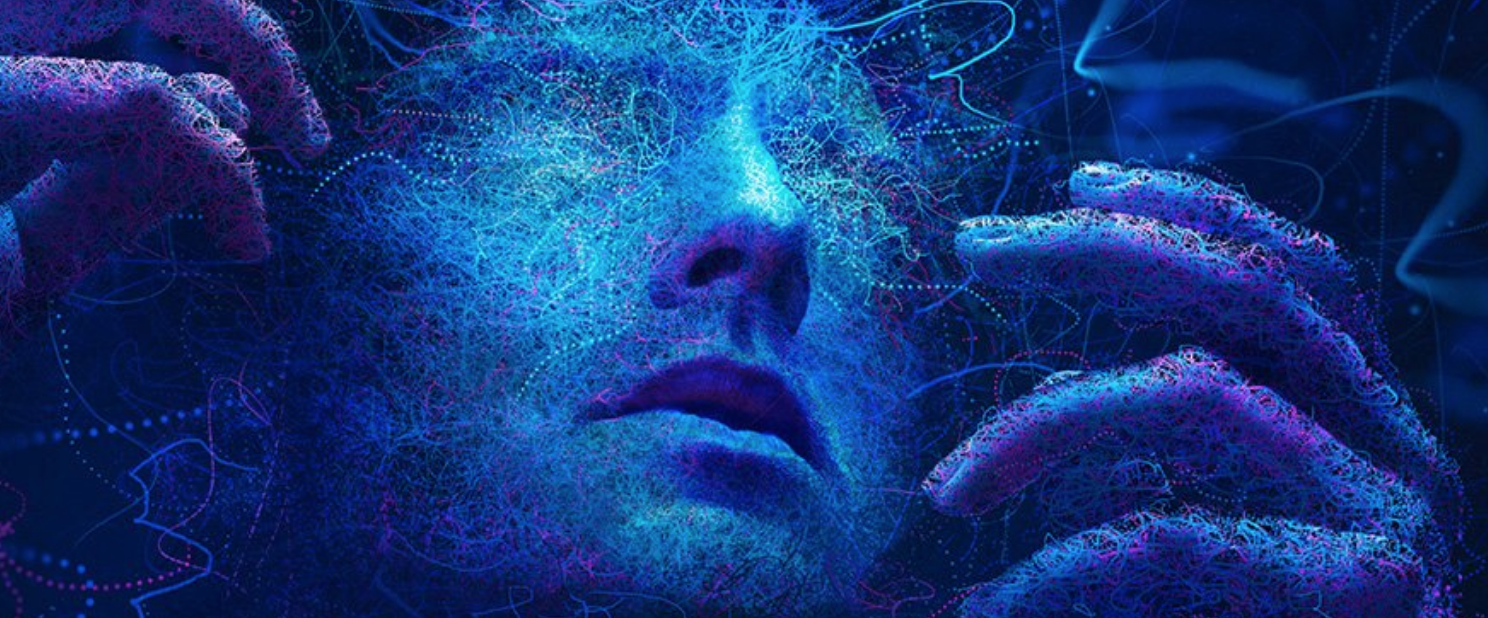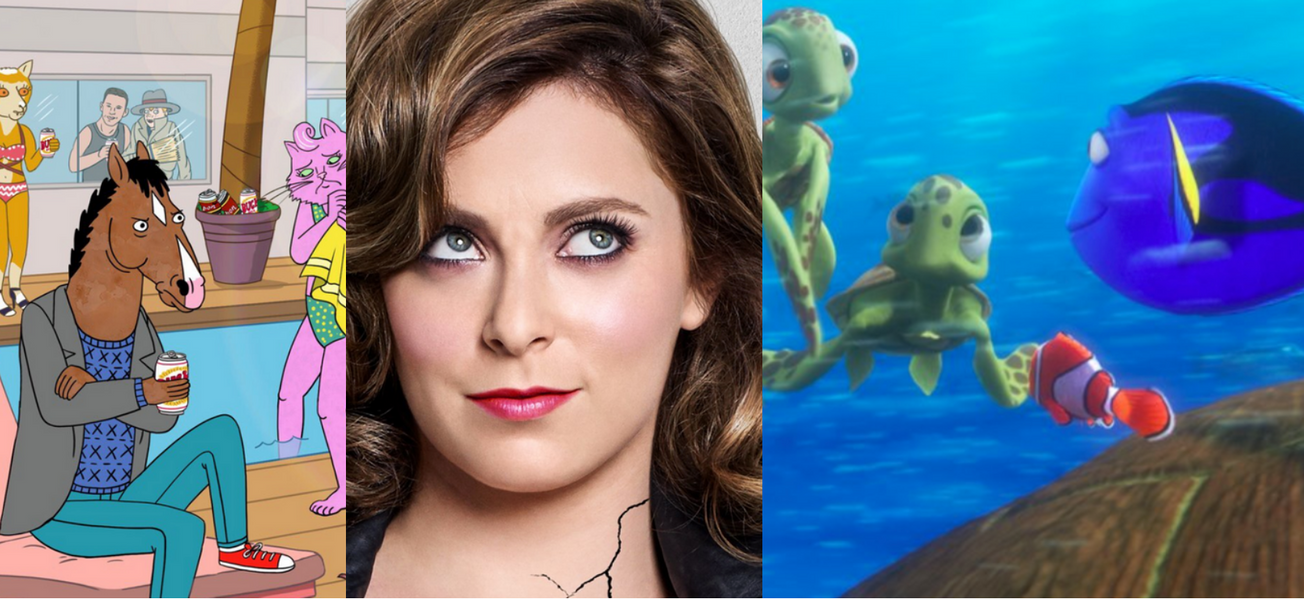Epigram Film and TV writers give their picks of accurate portrayals of mental health on screen and those that have sucessfully raised mental health awareness.
Mental illness is a difficult topic to interpret in front of the camera. To encompass the varying experiences of many sufferers in one portrayal is a tough task, and many TV shows and films get it wrong. However, the following examples offer great representation for the wide ranging issue and propel it into public conversation.
- Bojack Horseman (2014-) by Patrick Sullivan, Epigram Film & TV Editor 2018-19
Here is an animated Netflix series following a half-man, half-horse, former sitcom star as he fades into alcoholism in the alternative, animal filled, showbiz world of Hollywood. It’s whacky, pun-filled, and, surprisingly, a fantastic depiction of nihilism, depression, addiction, and other mental health issues. The animated form and surrealist world allows the creative team to warp the perspective for individual episodes to achieve a unique insight into the inner workings of the human mind. Highlights include two episodes from the recent Season 4, Stupid Piece of Shit and Time’s Arrow, which interpret anxiety and dementia respectively.
can u believe netflix renewed 13 reasons why, a show that didn’t even need a season 2, without thinking twice about it
— flavia (@upsideblythe) August 4, 2018
- Girl, Interrupted (1999) by Lilia Sebouai, English Student 2017-
Girl, Interrupted is based on the 1993 memoirs of Susanna Kaysen, who, after a failed suicide attempt, was sent to a mental institution. Winona Ryder plays Kaysen in the film which follows her entering the warped existence of those that truly belong there. Patients range from vulnerable to sociopathic, but a camaraderie nevertheless forms between the women. Set in the 1960s - when mental illness was automatically diagnosed as insanity - they use the institute as a sort of safe-haven to escape the rigidity and judgements enforced by society. The explosive scenes of hysteria and mental breakdown, including an Oscar winning supporting role for Angelina Jolie, effectively convey the harrowing path of recovery that must be travelled to be deemed as ‘cured’ by those in positions of power.
- Crazy Ex-Girlfriend (2015-) by Leah Martindale, Film Student 2016-
The musical comedy series Crazy Ex-Girlfriend, despite its misleading name (which is debated and reclaimed throughout the current three seasons), is one of the most innovative pieces of television currently airing due to its honest and healing twofold approach to mental health.
Firstly, in approach: the titular ‘crazy’ protagonist, Rebecca Bunch, is represented with equal parts sympathy and agency. Her trials and tribulations, while affected by her mental state, do not lead to audience demonization, but instead a drawn-out discovery of the scope of the human mind’s capacities. Secondly, in content: while Rebecca is led through a series of misdiagnoses and stigma, as is relatable to anyone with mental health issues. She is finally identified as having one of the most stigmatised mental illnesses, Borderline Personality Disorder. Seeing Rebecca handle her troubles, and looking in retrospect on how they have affected our otherwise ‘normal’ protagonist, is one of the simplest, most effective methods of normalising mental illness.
- Taxi Driver (1976) by Charlie Gearon, Epigram Film & TV Editor 2017-18
Perhaps the biggest danger in attempting to portray any kind of mental illness through the medium film is allowing the drift into sentimentality. All too often, mental unrest is reduced to a romanticised, surface-level caricature of the difficult and painful reality. Martin Scorsese’s Taxi Driver (1976) makes no such mistake. Travis Bickle (Robert De Niro) is one of cinema’s most difficult characters. He is violent, self-righteous, self-destructive, hopelessly sad, and hopelessly devoid of self-awareness. Scorsese forces the viewer to confront the uncomfortable reality of his existence without relief; almost the entirety of the 2 hour running time is spent in Bickle’s presence with cameras placed invasively close. Nothing is concealed, with Bickle’s descent into madness being made painfully aware to the viewer while he himself remains entirely ignorant. Taxi Driver is a masterclass in uncomfortable cinema - a necessity when trying to portray the discomfort that accompanies real mental illness.

Twitter / @LegionFX
- Legion (2017-) by Alex Troman, InFilm Society President 2018-19
FX’s Legion, now in its second season, combines a rich Marvel mythology with a wealth of knowledge about mental health issues. The depiction of protagonist David’s schizophrenia are handled with nuance and gravitas by showrunner Noah Hawley and performed with exquisite turmoil by Legion’s star Dan Stevens. Through the show’s conceit of a superpowered battle between good and evil, Legion uses accessible symbolism to express the central conflict between the sides of one’s personality experienced by mental health sufferers. Many episodes resemble manic and depressive attacks, with the show’s constant warping of reality expressing its hero’s inability to trust himself and know what is real. The fantastical realism is entertaining and provides a sense of escape which many other ‘on the nose’ depictions of mental health issues often neglect.
Don't forget to grab your copy of #FindingDory after you sneak out a little early today: https://t.co/gztHru94v5 pic.twitter.com/UZwajIHG78
— Finding Dory (@findingdory) December 2, 2016
- Finding Dory (2016) by Maddie Bowers, InFilm Society Social Secretary 2018-19
Despite all its criticisms as a film itself, Finding Dory is surprisingly a torch bearer for so many dealing with mental challenges. Dory has trouble remembering, yes, and this causes her many issues, yes. But by the final act, the film brilliantly shows how Dory’s not-so-normal brain helps her resolve her problems with her own original thought. It’s hard not to sob ferociously on your bed at 11pm whilst stuffing sweet-chili crisps into your mouth as Dory’s mum says “You remembered, in your own, amazing Dory way”. Finding Dory speaks to the child within us, reassuring us that ‘your brain is different and that’s okay’.
Featured image: Twitter








